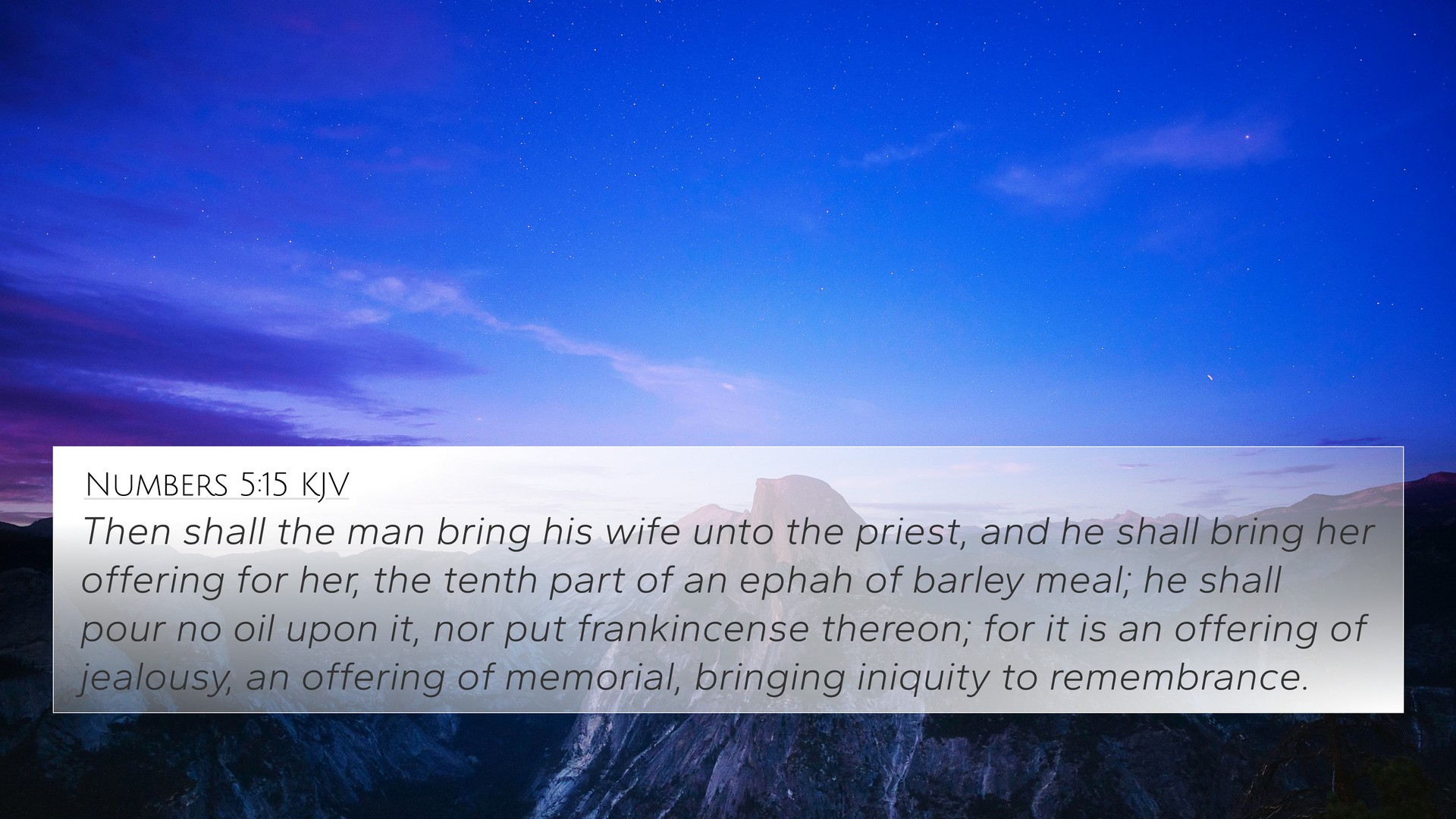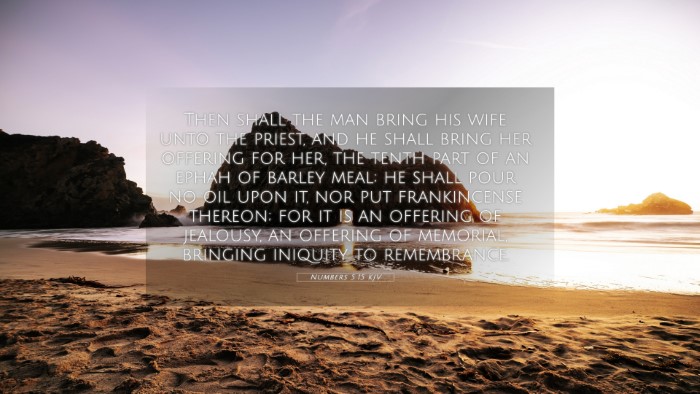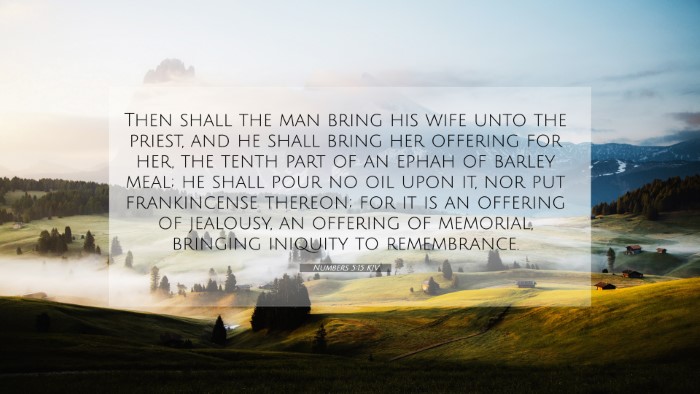Understanding Numbers 5:15
Verse: "Then shall the man bring his wife unto the priest, and he shall bring her offering for her, the tenth part of an ephah of barley meal; he shall not pour oil upon it, nor put frankincense thereon; for it is an offering of jealousy, an offering of memorial, bringing iniquity to remembrance."
Summary of Meaning
Numbers 5:15 describes a specific ritual prescribed in the law of Moses for a man who suspected his wife of infidelity. This passage illustrates elements of jealousy, legal procedures regarding marital fidelity, and the required offerings that reflect the gravity of the situation.
Ritual and Significance
Ritual Context: The context of this offering foregrounds the relationship dynamics within marriage. The offering of barley meal, without oil or frankincense, signifies a solemn acknowledgment of the tension and distress caused by jealousy. As noted by Matthew Henry, this reflects a deep relational concern that necessitates divine intervention through the priest.
Spiritual Significance: Albert Barnes observes that the absence of oil and frankincense indicates this is not a celebration but a serious appeal for clarity and truth amidst suspicion. It calls upon God to reveal the truth regarding the wife’s fidelity, thus involving the divine in human relationships.
Cross-Referencing Biblical Texts
- Deuteronomy 22:22-24 - Discusses the penalties for adultery and the seriousness of marital fidelity.
- Matthew 5:27-28 - Jesus expands on the commandment regarding adultery, emphasizing the heart's intentions.
- James 4:2-3 - Touches on the motivations behind jealousy and selfish desires.
- Proverbs 6:32-33 - Highlights the consequences of infidelity and the wounds it inflicts.
- 1 Peter 3:7 - Advises husbands to honor their wives, emphasizing kindness and understanding in marriage.
- Ecclesiastes 4:9-12 - Discusses the value of companionship and unity in relationships.
- Malachi 2:14-16 - Addresses God’s view on marriage and the seriousness of covenant relationships.
Connections Between Bible Verses
Understanding Numbers 5:15 involves analyzing the connections within Scripture that address themes of fidelity, jealousy, and divine justice:
- Linking Bible Scriptures: The connection between Numbers 5:15 and related verses illustrates the continuity of God's concern for marital integrity throughout the Bible.
- Thematic Bible Verse Connections: This verse reinforces themes of trust and reconciliation in human relationships.
- Cross-Referencing Bible Study: Studying the parallels with other verses allows for a more rounded understanding of how jealousy and fidelity are treated in God's laws.
Comparative Bible Verse Analysis
By comparing Numbers 5:15 with New Testament teachings, we see a continuation of the principles regarding integrity and relationships:
- New Testament Insights: Jesus' teachings on adultery and lust illuminate the heart issues underlying the jealousy addressed in Numbers 5:15.
- Identification of Themes: The persistent examination of the heart's motives surrounding relationships, evident across both Testaments, provides a foundation for understanding God’s expectations for human conduct.
Practical Application
The implications of Numbers 5:15 for modern believers involve a recognition of the seriousness of marital vows and the importance of addressing suspicions and jealousies within relationships:
- Tools for Bible Cross-Referencing: Utilizing a Bible concordance or cross-reference guide can aid in exploring related scriptures that deal with similar themes.
- How to Use Bible Cross-References: Engage in cross-referencing Bible study methods to deepen your understanding of topics related to marital faithfulness and personal integrity.
Conclusion
The study of Numbers 5:15 highlights the serious nature of marital fidelity within a scriptural context, offering rich opportunities for reflection and understanding the divine perspective on human relationships. The inter-biblical dialogue fostered by cross-referencing related verses enhances our comprehension of the sacredness of marriage and helps believers navigate the complexities of their own relationships.








